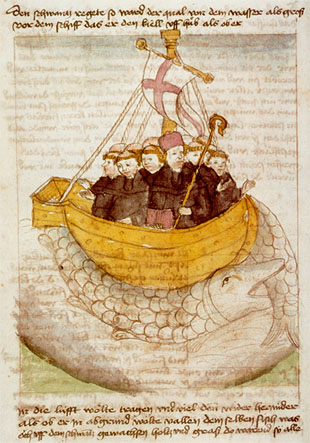In Greek and Roman Antiquity extreme weather events and natural disasters like droughts, earthquakes and floods were a frequent occurrence. They also offered important stages for the display of political power. Political leaders would rush to the occasion to help the population out of their hardship and make sure that other powers and posterity notice. In fact, according to historian Holger Sonnabend, political power was recognized mainly by the ability to help and rebuild. This was even sometimes used by suffering cities to get as much support as possible from rivaling politicians.
Accompanying the imperative of help was the public display of grieve. Compassion was expected of those in power and it was common for leaders to require historians to write up their grieve in dramatic ways. Here is an example from the 7. Century CE by Georgios Kedrenos, who describes in retrospect the expression of grieve of emperor Justinian upon the earth quake in Antiochia in May 526.
“He threw aside his crown and his imperial clothes, and, dressed in dirty rags, wept for several days, and even on feast days he entered the church in pitiful robes because he could not bear to put on any signs of his power.”
The educator and historian Libanius (314 – 392 CE) on the other hand wrote in an eulogy on emperor Julian that the earth itself mourned with an earth quake and several tsunamis in the Mediterranean in 365 CE the loss of this great emperor the year before.
“Earth truly has been fully sensible of her loss, and has honoured the hero by an appropriate shearing off of her tresses, shaking off, as a horse doth his rider, so many and such great cities. In Palestine several; of the Libyans all and every one. Prostrate lie the largest towns of Sicily, prostrate all of Greece save one; the fair Nicaea lies in ruins; the city, pre-eminent in beauty, totters to her fall, and has no confidence for the time to come! These are the honours paid to him by Earth, or if you choose, by Neptune himself; but on the part of the Seasons, famines and pestilences, destroying alike man and beast, just as though it were not lawful for creatures upon earth to enjoy health now that he has departed! What wonder then is it, if such being the state of things, many a one, like myself, deems it a loss not to have died before!”
For the disaster of 365 in the Mediterranean see also this post.

